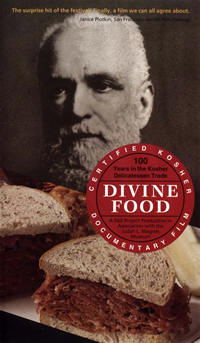Divine Food
Divine Food
Divine Food refers to the concept of food that is considered sacred, blessed, or of divine origin in various religions and spiritual traditions. This concept is prevalent in many cultures and often involves specific rituals, offerings, and dietary laws.
Religious Significance[edit | edit source]
Divine food is often associated with deities and is used in rituals and ceremonies to honor and appease the divine. In many traditions, consuming divine food is believed to bring blessings, spiritual purification, and a closer connection to the divine.
Hinduism[edit | edit source]
In Hinduism, divine food is known as Prasada. Prasada is food that is first offered to a deity during a puja (worship) and then distributed to the devotees. It is considered to be imbued with the deity's blessings.
Christianity[edit | edit source]
In Christianity, the concept of divine food is most prominently seen in the Eucharist, also known as Holy Communion. During the Eucharist, bread and wine are consecrated and consumed, symbolizing the body and blood of Jesus Christ.
Islam[edit | edit source]
In Islam, food that is considered permissible and pure is referred to as Halal. While not divine in itself, Halal food adheres to the dietary laws prescribed in the Quran and is considered to be in accordance with divine will.
Buddhism[edit | edit source]
In Buddhism, offerings of food are made to Buddha and other deities during various rituals. These offerings are believed to generate merit and bring spiritual benefits to the practitioner.
Cultural Practices[edit | edit source]
Different cultures have unique practices and beliefs surrounding divine food. These practices often involve specific types of food, preparation methods, and rituals.
Ancient Greece[edit | edit source]
In Ancient Greece, offerings of food and drink were made to the gods during religious festivals and ceremonies. These offerings, known as libations, were believed to ensure the favor of the gods.
Indigenous Traditions[edit | edit source]
Many indigenous peoples have traditions involving divine food. For example, in some Native American cultures, food offerings are made to the spirits during ceremonies to ensure a successful harvest or hunt.
Modern Interpretations[edit | edit source]
In contemporary times, the concept of divine food has evolved and can be seen in various new religious movements and spiritual practices. Some people view organic, natural, or ethically sourced food as having a divine quality due to its purity and alignment with nature.
See Also[edit | edit source]
References[edit | edit source]
Search WikiMD
Ad.Tired of being Overweight? Try W8MD's physician weight loss program.
Semaglutide (Ozempic / Wegovy and Tirzepatide (Mounjaro / Zepbound) available.
Advertise on WikiMD
|
WikiMD's Wellness Encyclopedia |
| Let Food Be Thy Medicine Medicine Thy Food - Hippocrates |
Translate this page: - East Asian
中文,
日本,
한국어,
South Asian
हिन्दी,
தமிழ்,
తెలుగు,
Urdu,
ಕನ್ನಡ,
Southeast Asian
Indonesian,
Vietnamese,
Thai,
မြန်မာဘာသာ,
বাংলা
European
español,
Deutsch,
français,
Greek,
português do Brasil,
polski,
română,
русский,
Nederlands,
norsk,
svenska,
suomi,
Italian
Middle Eastern & African
عربى,
Turkish,
Persian,
Hebrew,
Afrikaans,
isiZulu,
Kiswahili,
Other
Bulgarian,
Hungarian,
Czech,
Swedish,
മലയാളം,
मराठी,
ਪੰਜਾਬੀ,
ગુજરાતી,
Portuguese,
Ukrainian
Medical Disclaimer: WikiMD is not a substitute for professional medical advice. The information on WikiMD is provided as an information resource only, may be incorrect, outdated or misleading, and is not to be used or relied on for any diagnostic or treatment purposes. Please consult your health care provider before making any healthcare decisions or for guidance about a specific medical condition. WikiMD expressly disclaims responsibility, and shall have no liability, for any damages, loss, injury, or liability whatsoever suffered as a result of your reliance on the information contained in this site. By visiting this site you agree to the foregoing terms and conditions, which may from time to time be changed or supplemented by WikiMD. If you do not agree to the foregoing terms and conditions, you should not enter or use this site. See full disclaimer.
Credits:Most images are courtesy of Wikimedia commons, and templates, categories Wikipedia, licensed under CC BY SA or similar.
Contributors: Prab R. Tumpati, MD

